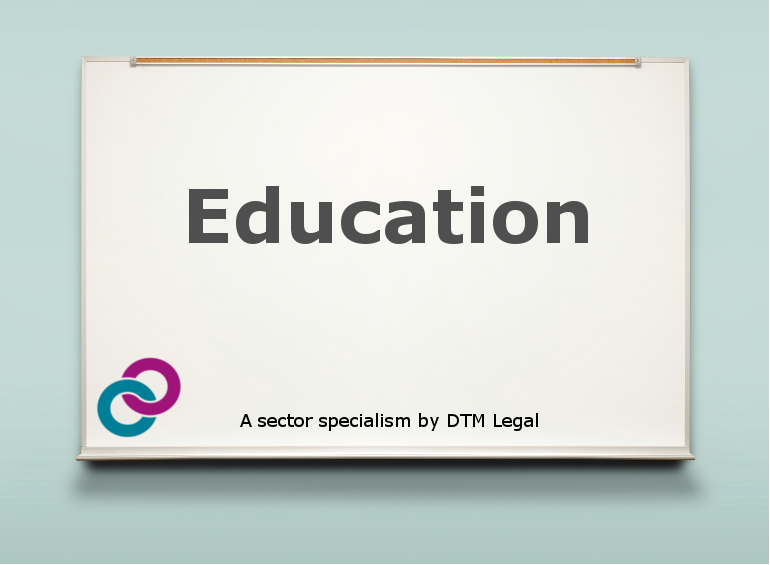The fourth blog in our series looking at conversion to Academy status considers some of the issues Academies face after completion of the conversion process. Support at this stage is essential to ensuring the success of not only a newly formed Academy but also for long-term success.
Companies Act Compliance
The Academy Trust is a separate legal entity in its own right and, therefore, it must comply with statutory obligations, responsibilities and duties and acts within its powers. These include the appointment and removal of trustees, governors and members and the appointment of an officer or clerk to undertake numerous tasks such as filing the annual return, annual accounts, resolutions and updating the company books.
Legal support
The school will need to have in place the facility to obtain on-going legal support for not only the areas above but also employment/HR, dispute resolution, contract negotiation, Regulatory Advice including Governance and Real Estate.
DTM can advise on all of the above areas. We have lawyers who are experienced in all areas and who can provide advice and guide a school through the conversion process and provide cost effective and commercial advice after the conversion process has completed.
Funding
The Academy will need on-going financial support. The funding agreement entered into during the conversion process does not detail the amount of grant the school will receive for the running of the Academy. The funding details are provided in an annual letter of funding. The school will usually receive the figure 4 weeks before conversion however funds are not transferred until the conversion is complete. A bank account should be set up in line with conversion to enable swift transfer of funds on completion.
Safeguarding
If the school is taking on any new employees or customer facing services, the school will need to ensure compliance with its safeguarding requirements, including DBS (CRB) checks on individuals.
Autonomy
Academy status brings many new freedoms including greater flexibility over finances. The school can decide how best to use the facilities to create revenue. There are a host of opportunities available but the school must have ensured they have the rights to do so through legal documentation completed during the conversion process.
Goods and Services
The school has a duty as a recipient of public monies to ensure that it can demonstrate value for money in the use of its funds. The school will need a range of services and, along with deciding who to instruct to provide the services, the school should seek legal advice in relation to the drafting and implementing of contracts of goods and services.
Academies must comply with their own internal procedure and relevant legislation, including potentially European procurement law.
Groups of local academies may decide to collectively obtain goods and services together providing better value for money.
Insurance
The school will need to acquire a wide variety of insurance cover to protect itself against potential claims arising from employees, pupils, parents and other third parties. DTM recommends that Governors seek indemnity cover for losses arising from decisions made in good faith. Extensive insurance will also be required for the land and building(s).
It is important the school continues to have support post-conversion. DTM Legal are able to provide advice and guidance after conversion. For legal advice on Academies please speak to Alison Brennan at alison.brennan@dtmlegal.com or visit our Corporate and Commercial page for more information on our services.







